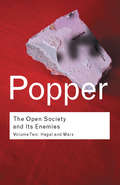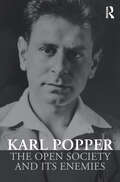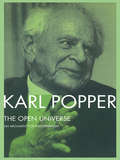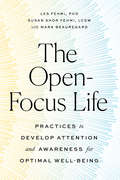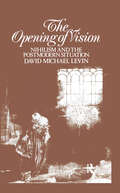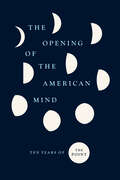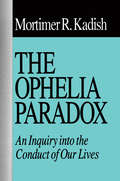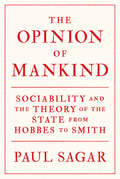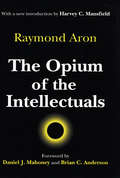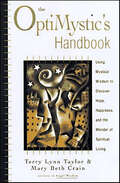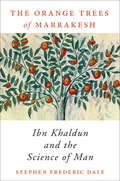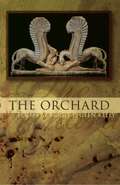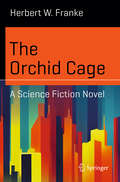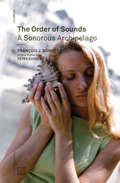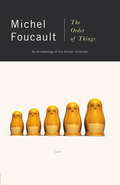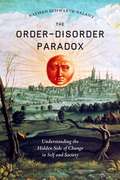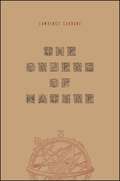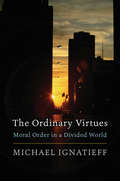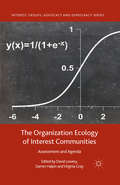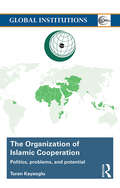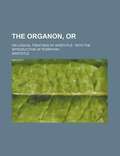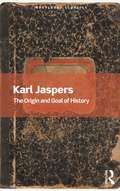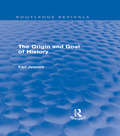- Table View
- List View
The Open Society and its Enemies: Hegel and Marx (Routledge Classics)
by Karl PopperWritten in political exile during the Second World War and first published in 1945, Karl Popper's The Open Society and Its Enemies is one of the most influential books of the twentieth century. Hailed by Bertrand Russell as a 'vigorous and profound defence of democracy', its now legendary attack on the philosophies of Plato, Hegel and Marx exposed the dangers inherent in centrally planned political systems. Popper's highly accessible style, his erudite and lucid explanations of the thought of great philosophers and the recent resurgence of totalitarian regimes around the world are just three of the reasons for the enduring popularity of The Open Society and Its Enemies, and for why it demands to be read both today and in years to come. This is the second of two volumes of The Open Society and Its Enemies.
The Open Society and its Enemies: The Spell of Plato (Routledge Classics #Vol. 1)
by Karl PopperWritten in political exile in New Zealand during the Second World War and published in two volumes in 1945, The Open Society and its Enemies was hailed by Bertrand Russell as a 'vigorous and profound defence of democracy'. This legendary attack on the philosophies of Plato, Hegel and Marx prophesied the collapse of communism in Eastern Europe and exposed the fatal flaws of socially engineered political systems. It remains highly readable, erudite and lucid and as essential reading today as on publication in 1945. It is available here in a special centenary single-volume edition.
The Open Universe: An Argument for Indeterminism From the Postscript to The Logic of Scientific Discovery
by Karl PopperThe Open Universe is one of the three volumes of Karl Popper’s Postscript to the Logic of scientific Discovery. The Postscript is the culmination of Popper’s work in the philosophy of physics and a new famous attack on subjectivist approaches to philosophy of science.
The Open-Focus Life: Practices to Develop Attention and Awareness for Optimal Well-Being
by Les Fehmi Susan Shor FehmiLearn to change your mindset, relieve anxiety, dissolve pain, and bring a greater sense of wellbeing into your life by changing how you pay attention, with easy-to-apply techniques and in-the-moment exercises from Dr. Les Fehmi&’s Open Focus method. How you pay attention affects literally every moment of your conscious life, so learning how to be flexible with your focus can profoundly change how you respond to everyday challenges. The Open-Focus Life shows you many different ways of paying attention that you were never taught in school and illustrates how to use different attention styles as powerful tools to help you feel better, act more effectively, and improve the quality of your life. Dr. Les Fehmi and Susan Shor Fehmi, pioneers in biofeedback, have spent decades developing and applying these methods with clients from all walks of life in their private clinical practice. In The Open-Focus Life, they coach you through common everyday stressors and show you how to shift out of modes of attention that exacerbate negative feelings and into modes of calm and balance. Based on peer-reviewed neuroscience and clinical experience, these quick, practical techniques will improve how you feel about your body, how you relate to people at work and at home, and how you interact with your everyday environment, to achieve a more relaxed life with less chronic physical and emotional pain.
The Opening of Vision: Nihilism and the Postmodern Situation
by David Michael LevinNietzsche and Heidegger saw in modernity a time endangered by nihilism. Starting out from this interpretation, David Levin links the nihilism raging today in Western society and culture to our concrete historical experience with vision.
The Opening of the American Mind: Ten Years of The Point
by The PointIn a cultural landscape dominated by hot takes and petty polemics, The Point stands for something different. Informed by the conviction that humanistic thinking has relevance for everyday life, the magazine has long maintained a rare space for thoughtful dialogue between a wide range of political views, philosophical perspectives, and personal experiences: its contributors include liberals and conservatives, philosophers and activists, Marxists and Catholics, New Yorkers and Midwesterners. A little more than a decade since its founding on the campus of the University of Chicago, it offers a unique and revelatory look at the changing face of America, one that speaks not only to way American minds have been forced to “open” by a decade of trauma and transformation, but also to the challenge of remaining open to our fellow citizens during our deeply divided present. Featuring award-winning and highly acclaimed essays from The Point’s first ten years, The Opening of the American Mind traces the path of American intellect from the magazine’s inception in 2009, when Barack Obama was ascending the steps of the White House, to the brink of the 2020 election. The essays, chosen both for the way they capture their time and transcend it, are assembled into five sections that address cycles of cultural frustrations, social movements, and the aftermath of the 2016 election, and provide lively, forward-looking considerations of how we might expand our imaginations into the future. Spanning the era of Obama and Trump, Occupy Wall Street and Black Lives Matter, #MeToo and renewed attention to reparations, this anthology offers critical reflections on some of the decade’s most influential events and stands as a testament to the significance of open exchange. The intellectual dialogue provided by The Point has never been more urgently needed, and this collection will bring the magazine’s vital work to an even broader readership.
The Ophelia Paradox: An Inquiry into the Conduct of Our Lives
by Mortimer R. KadishIn Shakespeare's Hamlet, when Ophelia tells King Claudius, "Lord, we know what we are, but know not what we may be," she implies more than that we can never know what will happen next, that we have no grounds on which to make significant decisions in the conduct of our lives. She herself had done little or nothing to bring about her present state. Now she is quite mad. Claudius, too, could never have guessed where he would end. Yet the rest of us, although not significantly more knowing than they, profess to think we can actually make Me decisions which genuinely good reasons will support.Experience seems to have convinced us that, deficient in self-knowledge though we may be, sometimes the arrow of decision reaches its mark. Kadish examines how decisions hi the conduct of our lives are possible, how they may be justified, and what the limits of that justification might be for a self that defines itself in a context of social change. Although the need for self-justification tends to be regarded as a weakness, this book suggests that it may also be regarded as the inevitable outcome of the desire to make justifiable decisions, those for which on reflection one can approve oneself.The prime problem of the conduct of life, according to Kadish, is to say when one can and when one cannot justify oneself for one's conduct not to others but to oneself. He proposes that through self judgment individuals develop that very self-interest in virtue of which they endeavor to choose one course of action rather than another. He proposes also that they justify and form themselves through their self-identification as members of communities in conflict and in process of transformation. From this difficult social and human condition the basic problems of ethical and social theory, together with the possibility of a theory of good reasons, are held to arise.In the present time of discontent and emphasis on change hi social, economic, and political life, The Ophelia Paradox has a particular pertinence to the prospects for resolving the basic issues of conduct. It should be of interest to philosophers, sociologists, and psychologists, and of special relevance to anyone concerned with the interrelationships of ethics, art, and law.
The Opinion of Mankind: Sociability and the Theory of the State from Hobbes to Smith
by Paul SagarHow David Hume and Adam Smith forged a new way of thinking about the modern stateWhat is the modern state? Conspicuously undertheorized in recent political theory, this question persistently animated the best minds of the Enlightenment. Recovering David Hume and Adam Smith's long-underappreciated contributions to the history of political thought, The Opinion of Mankind considers how, following Thomas Hobbes's epochal intervention in the mid-seventeenth century, subsequent thinkers grappled with explaining how the state came into being, what it fundamentally might be, and how it could claim rightful authority over those subject to its power. Hobbes has cast a long shadow over Western political thought, particularly regarding the theory of the state. This book shows how Hume and Smith, the two leading lights of the Scottish Enlightenment, forged an alternative way of thinking about the organization of modern politics. They did this in part by going back to the foundations: rejecting Hobbes's vision of human nature and his arguements about our capacity to form stable societies over time. In turn, this was harnessed to a deep reconceptualization of how to think philosophically about politics in a secular world. The result was an emphasis on the "opinion of mankind," the necessary psychological basis of all political organization. Demonstrating how Hume and Smith broke away from Hobbesian state theory, The Opinion of Mankind also suggests ways in which these thinkers might shape how we think about politics today, and in turn how we might construct better political theory.
The Opium of the Intellectuals
by Raymond AronRaymond Aron's 1955 masterpiece The Opium of the Intellectuals, is one of the great works of twentieth- century political reflection. Aron shows how noble ideas can slide into the tyranny of "secular religion" and emphasizes how political thought has the profound responsibility of telling the truth about social and political reality-in all its mundane imperfections and tragic complexities.Aron explodes the three "myths" of radical thought: the Left, the Revolution, and the Proletariat. Each of these ideas, Aron shows, are ideological, mystifying rather than illuminating. He also provides a fascinating sociology of intellectual life and a powerful critique of historical determinism in the classically restrained prose for which he is justly famous.For this new edition, prepared by Daniel J. Mahoney and Brian C. Anderson as part of Transaction's ongoing "Aron Project," political scientist Harvey Mansfield provides a luminous introduction that underscores the permanent relevance of Aron's work. The new edition also includes as an appendix "Fanaticism, Prudence, and Faith," a remarkable essay that Aron wrote to defend Opium from its critics and to explain further his view of the proper role of political thinking. The book will be of interest to all students of political theory, history, and sociology.
The OptiMystic's Handbook: Using Mystical Wisdom to Discover Hope, Happiness, and the Wonder of Spiritual living
by Mary Beth Crain Terry Lynn TaylorFirst introduced in Terry Lynn Taylor's Messengers of the Light, the concept of optimysticism is one that combines elements of optimism and mysticism to allow us to see not only the best of this world but also beyond this world, into eternity. In short, it is an exciting new way to tap into the positive side of life and learn to live with hope, passion, purpose and joy no matter what challenges we may encounter.Much more than a simple "don't worry, be happy" salve, optimysticism offers insight for lifting every aspect of life relationships, work, spirituality to a new level of fulfillment. Combining spiritual and metaphysical ideas with down-to-earth excercises and activities, The Optimystic's Handbook offers a solid, practical approach to developing otimystic vision a 20/20 balance of sight and insight that dramatically alters our perspective from an anxious, limiting view of the world to one that is fully open to dreams, goals, ambitions and all the possibilities life holds in store.For everyone ready to live more peacefully and productively in the coming years of rapid millenial change, optimysticm hold the key. Coauthors Taylor and Crain brilliantly point the way to moving from awareness to action, ideas to results, hope to fulfillment.
The Orange Trees of Marrakesh: Ibn Khaldun and the Science of Man
by Stephen Frederic DaleAn examination of Khaldun’s Islamic history of the premodern world, its philosophical underpinnings, and the author himself.In his masterwork Muqaddimah, the Arab Muslim Ibn Khaldun (1332–1406), a Tunisian descendant of Andalusian scholars and officials in Seville, developed a method of evaluating historical evidence that allowed him to identify the underlying causes of events. His methodology was derived from Aristotelian notions of nature and causation, and he applied it to create a dialectical model that explained the cyclical rise and fall of North African dynasties. The Muqaddimah represents the world’s first example of structural history and historical sociology. Four centuries before the European Enlightenment, this work anticipated modern historiography and social science.In Stephen F. Dale’s The Orange Trees of Marrakesh, Ibn Khaldun emerges as a cultured urban intellectual and professional religious judge who demanded his fellow Muslim historians abandon their worthless tradition of narrative historiography and instead base their works on a philosophically informed understanding of social organizations. His strikingly modern approach to historical research established him as the premodern world’s preeminent historical scholar. It also demonstrated his membership in an intellectual lineage that begins with Plato, Aristotle, and Galen; continues with the Greco-Muslim philosophers al-Farabi, Avicenna, and Averroes; and is renewed with Montesquieu, Hume, Adam Smith, and Durkheim.Praise for The Orange Trees of Marrakesh“Stephen Dale’s book contains a careful account of the dizzying ups and downs of Ibn Khaldun’s political and academic career at courts in North Africa, Andalusia and Egypt. For these and other reasons The Orange Trees of Marrakesh deserves careful and respectful attention.” —Robert Irwin, The Times Literary Supplement (UK)“Historian Stephen Frederic Dale argues that Ibn Khaldun’s work is a key milestone on the road from Greek to Enlightenment thought, chiming with the radical reasoning of philosophers such as Montesquieu and Adam Smith.” —Barbara Kiser, Nature“Dale’s interest in Greco-Islamic philosophy contributes to this biography’s uniqueness . . . This work provides indispensable background information to truly appreciate this single most influential Islamic historian.” —R. W. Zens, Choice“Excellent scholarship on a fascinating subject.” —Publishers Weekly
The Orchard
by Brigit Pegeen KellyRichly allusive, the poems in Brigit Pegeen Kelly's The Orchard evoke elements of myth in distinctive aural and rhythmic patterns. Her poetic strength lies in her ability to cast poems as modern myths and allegories. Propelled by patterned repetitions and lush cadences, the poems move the reader through a landscape where waking and dream consciousness fuse.Brigit Pegeen Kelly teaches creative writing at the University of Illinois at Urbana-Champaign. Her poetry collections are Song (BOA Editions), the 1994 Lamont Poetry Selection of The Academy of American Poets and a finalist for the 1995 Los Angeles Times Book Award, and To the Place of Trumpets, selected by James Merrill for the 1987 Yale Series of Younger Poets Prize.
The Orchard: Song And The Orchard (American Poets Continuum #82.00)
by Brigit Pegeen KellyRichly allusive, the poems in Brigit Pegeen Kelly&’s The Orchard evoke elements of myth in distinctive aural and rhythmic patterns. Her poetic strength lies in her ability to cast poems as modern myths and allegories. Propelled by patterned repetitions and lush cadences, the poems move the reader through a landscape where waking and dream consciousness fuse.Brigit Pegeen Kelly teaches creative writing at the University of Illinois at Urbana-Champaign. Her poetry collections are Song (BOA Editions), the 1994 Lamont Poetry Selection of The Academy of American Poets and a finalist for the 1995 Los Angeles Times Book Award, and To the Place of Trumpets, selected by James Merrill for the 1987 Yale Series of Younger Poets Prize.
The Orchid Cage: A Science Fiction Novel (Science and Fiction)
by Herbert W. FrankeThis book is a new English translation of the classic science fiction story written in 1961 by Herbert W. Franke, widely held to be the most important German-language science-fiction writer. A dead city on a distant planet, two groups of people trying to explore it. Step by step, they penetrate the outer ring with its ultra-modern technology, the half-ruined medieval city center and finally the mysterious center. But is the eerie city really dead? Suddenly the factories start working again, the automatons intervene, and somewhere in the background there is still something hidden that could perhaps awaken. But is it people or machines? Herbert W. Franke leads the reader into an oppressively strange world; only after the startling resolution does it become clear what lies behind the adventures of the intruders - not a cosmic strangeness, but a threatening development that could affect humans in the same way. Franke's novel is thus a parable of the evolution of all humans in the age of technical communication ...
The Order of Public Reason
by Gerald GausGerald Gaus shows how we can achieve a moral and political order that treats all as free and equal moral persons. The first part of this work analyses social morality as a system of authoritative moral rules. Drawing on an earlier generation of moral philosophers such as Kurt Baier and Peter Strawson as well as current work in the social sciences, Gaus argues that our social morality is an evolved social fact, which is the necessary foundation of a mutually beneficial social order. The second part considers how this system of social moral authority can be justified to all moral persons. Drawing on the tools of game theory, social choice theory, experimental psychology, and evolutionary theory, Gaus shows how a free society can secure a moral equilibrium that is endorsed by all, and how a just state respects, and develops, such an equilibrium.
The Order of Sounds: A Sonorous Archipelago
by Francois J. BonnetThis study of the subtlety, complexity, and variety of modes of hearing maps out a “sonorous archipelago”—a heterogeneous set of shifting sonic territories shaped by the vicissitudes of desire and discourse. Profoundly intimate yet immediately giving onto distant spaces, both an “organ of fear” and an echo chamber of anticipated pleasures, an uncontrollable flow subject to unconscious selection and augmentation, the subtlety, complexity, and variety of modes of hearing has meant that sound has rarely received the same philosophical attention as the visual. In The Order of Sounds, François J. Bonnet makes a compelling case for the irreducible heterogeneity of “sound,” navigating between the physical models constructed by psychophysics and refined through recording technologies, and the synthetic production of what is heard. From primitive vigilance and sonic mythologies to digital sampling and sound installations, he examines the ways in which we make sound speak to us, in an analysis of listening as a plurivocal phenomenon drawing on Foucault, Deleuze and Guattari, Barthes, Nancy, Adorno, and de Certeau, and experimental pioneers such as Tesla, Bell, and Raudive. Stringent critiques of the “soundscape” and “reduced listening” demonstrate that univocal ontologies of sound are always partial and politicized; for listening is always a selective fetishism, a hallucination of sound filtered by desire and convention, territorialized by discourse and its authorities. Bonnet proposes neither a disciplined listening that targets sound “itself,” nor an “ocean of sound” in which we might lose ourselves, but instead maps out a sonorous archipelago—a heterogeneous set of shifting sonic territories shaped and aggregated by the vicissitudes of desire and discourse.
The Order of Things: An Archaeology of Human Sciences (Routledge Classics)
by Michel FoucaultWith vast erudition, Foucault cuts across disciplines and reaches back into seventeenth century to show how classical systems of knowledge, which linked all of nature within a great chain of being and analogies between the stars in the heavens and the features in a human face, gave way to the modern sciences of biology, philology, and political economy. The result is nothing less than an archaeology of the sciences that unearths old patterns of meaning and reveals the shocking arbitrariness of our received truths. In the work that established him as the most important French thinker since Sartre, Michel Foucault offers startling evidence that "man"—man as a subject of scientific knowledge—is at best a recent invention, the result of a fundamental mutation in our culture.
The Order-Disorder Paradox: Understanding the Hidden Side of Change in Self and Society
by Nathan Schwartz-SalantIncreasing order in a system also creates disorder: this seemingly paradoxical idea has deep roots in early cultures throughout the world, but it has been largely lost in our modern lives as we push for increasing systematization in our world and in our personal lives. Drawing on nearly five decades of research as well as forty-five years working as a psychoanalyst, Nathan Schwartz-Salant explains that, in a world where vast amounts of order are being created through the growing success of science and technology, the concomitant disorder is having devastating effects upon relationships, society, and the environment. As a Jungian analyst with training in the physical sciences, Schwartz-Salant is uniquely qualified to explore scientific conceptions of energy, information, and entropy alongside their mythical antecedents. He analyzes the possible effects of created disorder, including its negative consequences for the creator of the preceding order as well as its potentially transformative functions. With many examples of the interaction of order and disorder in everyday life and psychotherapy, The Order-Disorder Paradox makes new inroads into our understanding of the wide-ranging consequences of the order we create and its effects on others and the environment.
The Orders of Nature
by Lawrence CahooneWinner of the 2015 John N. Findlay Award in Metaphysics presented by the Metaphysical Society of AmericaReviving and modernizing the tradition of post Darwinian naturalism, The Orders of Nature draws on philosophy and the natural sciences to present a naturalistic theory of reality. Conceiving of nature as systems, processes, and structures that exhibit diverse properties that can be hierarchically arranged, Lawrence Cahoone sketches a systematic metaphysics based on the following orders of nature: physical, material, biological, mental, and cultural. Using recent work in the science of complexity, hierarchical systems theory, and nonfoundational approaches to metaphysics, Cahoone analyzes these orders with explanations of the underlying science, covering a range of topics that includes general relativity and quantum field theory; chemistry and inorganic complexity; biology and telenomic explanation, or "purpose"; the theory of mind and mental causation as an animal phenomenon; and the human mind's unique cultural abilities. The book concludes with an exploration of what answers such a theory of naturalism can provide to questions about values and God.
The Ordinary Virtues: Moral Order in a Divided World
by Michael IgnatieffDuring a 3-year, 8-nation journey, Michael Ignatieff found that while human rights is the language of states and liberal elites, the moral language that resonates with most people is that of everyday virtues: tolerance, forgiveness, trust, and resilience. These ordinary virtues are the moral system of global cities and obscure shantytowns alike.
The Organization Ecology of Interest Communities: Assessment and Agenda (Interest Groups, Advocacy and Democracy Series)
by Darren Halpin Virginia Gray David LoweryThis volume summarizes the origins and development of the organization ecology approach to the study of interest representation and lobbying, and outlines an agenda for future research. Multiple authors from different countries and from different perspectives contribute their analysis of this research program.
The Organization of Islamic Cooperation: Politics, Problems, and Potential (Global Institutions)
by Turan KayaogluThe Organization of Islamic Cooperation (OIC) is the world’s leading international Islamic organization. Turan Kayaoglu provides the first accessible and concise introduction and overview of this important organization. This book details the OIC’s struggle to address popular Muslim demands balanced against the member states’ reluctance to support the OIC politically and materially. Despite this predicament, the organization has made itself increasingly relevant over the last decade through increasing its visibility as the representative body of Muslim unity and promoting its role as a reliable interlocutor on behalf of Muslims in global society. Outlining the history, workings and goals of the OIC, the book also highlights key issues that may influence the OIC’s ability to realize its potential in the future. This will be of great interest to students and scholars of international relations, international organizations and islamic studies.
The Organon; Or Logical Treatises Of Aristotle
by AristotleFull text of the Publisher's Note:<P> "The book descriptions we ask book sellers to display prominently warn that the book may have numerous typos, missing text, images and indexes.<P> "We scanned this book using character recognition software that includes an automated spell check. Our software is 99 percent accurate if the book is in good condition. However, we do understand that even one percent can be a very annoying number of typos! And sometimes all or part of a page is missing from our copy of a book. Or the paper may be so discolored from age that you can no longer read the type. Please accept our sincere apologies.<P> "After we re-typeset and design a book, the page numbers change so the old index and table of contents no longer work. Therefore, we often re¬move them.<P> "We would like to manually proof read and fix the typos and indexes, manually scan and add any illustrations, and track down another copy of the book to add any missing text. But our books sell so few copies, you would have to pay up to a thousand dollars for the book as a result."
The Origin and Goal of History (Routledge Classics)
by Karl JaspersKarl Jaspers (1883–1969) was a German psychiatrist and philosopher and one of the most original European thinkers of the twentieth century. As a major exponent of existentialism in Germany, he had a strong influence on modern theology, psychiatry and philosophy. He was Hannah Arendt’s supervisor before her emigration to the United States in the 1930s and himself experienced the consequences of Nazi persecution. He was removed from his position at the University of Heidelberg in 1937, due to his wife being Jewish. Published in 1949, the year in which the Federal Republic of Germany was founded, The Origin and Goal of History is a vitally important book. It is renowned for Jaspers' theory of an 'Axial Age', running from the 8th to the 3rd century BCE. Jaspers argues that this period witnessed a remarkable flowering of new ways of thinking that appeared in Persia, India, China and the Greco-Roman world, in striking parallel development but without any obvious direct cultural contact between them. Jaspers identifies key thinkers from this age, including Confucius, Buddha, Zarathustra, Homer and Plato, who had a profound influence on the trajectory of future philosophies and religions. For Jaspers, crucially, it is here that we see the flowering of diverse philosophical beliefs such as scepticism, materialism, sophism, nihilism, and debates about good and evil, which taken together demonstrate human beings' shared ability to engage with universal, humanistic questions as opposed to those mired in nationality or authoritarianism. At a deeper level, The Origin and Goal of History provides a crucial philosophical framework for the liberal renewal of German intellectual life after 1945, and indeed of European intellectual life more widely, as a shattered continent attempted to find answers to what had happened in the preceding years. This Routledge Classics edition includes a new Foreword by Christopher Thornhill.
The Origin and Goal of History (Routledge Revivals)
by Karl JaspersFirst published in English in 1953, this important book from eminent philosopher Karl Jaspers deals with the philsophy of the history of mankind. More specifically, its avowed aim is to assist in heightening our awareness of the present by placing it within the framework of the long obscurity of prehistory and the boundless realm of possibilities which lie within the undecided future.This analysis is split into 3 parts: World history The present and the future The meaning of history
